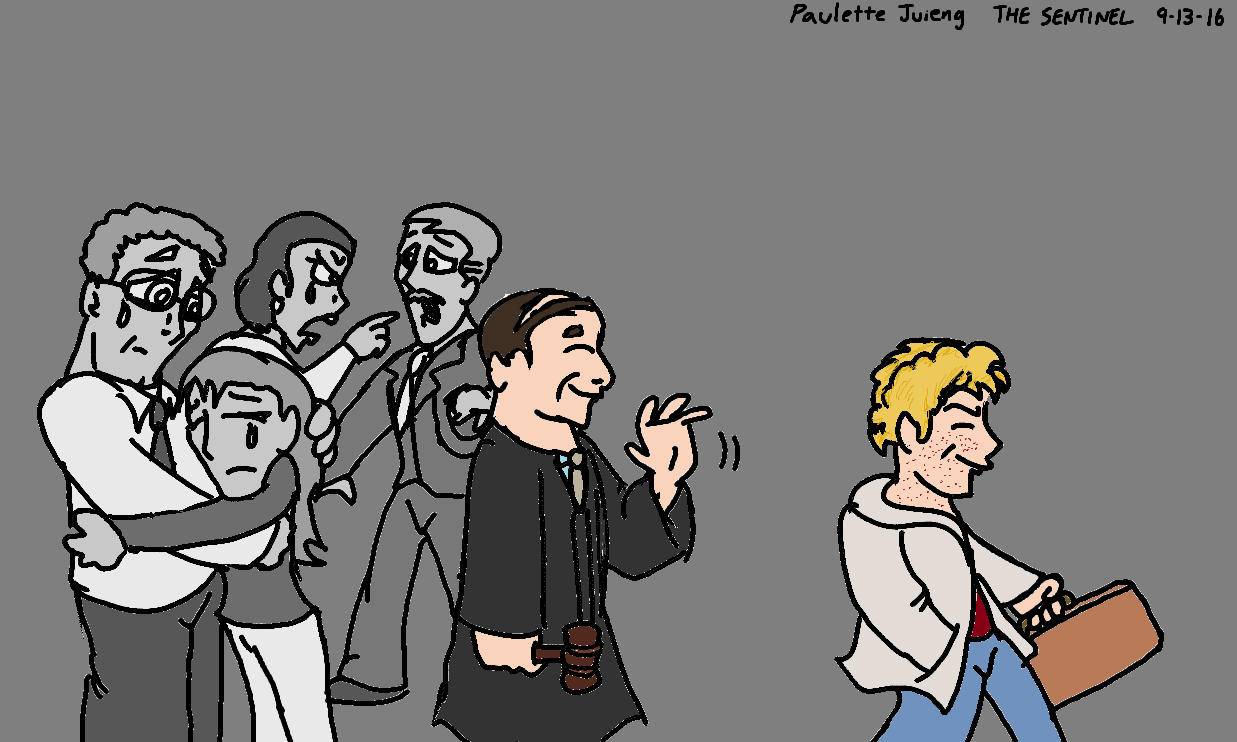After the much too early release of rapist Brock Turner, a former Stanford student, anger and confusion have arisen throughout the country.
According to the Los Angeles Times, “Turner was convicted in March of three felony counts: assault with the intent to commit rape of an unconscious person, sexual penetration of an unconscious person and sexual penetration of an intoxicated person.”
Even though this crime should have earned him at least six years in prison, Judge Aaron Persky sentenced Turner to a mere six months in jail followed by three years of probation.
Persky backed his sentence by stating that a longer sentence would have a “severe impact” on Turner. Turner’s father came to his son’s defense, claiming that Turner was so remorseful that he could not even stomach his favorite food, steak. However, on Sept. 2 Turner was released due to “good behavior”.
Thanks to Persky and our failed justice system, the message is now being sent out that if you rape someone, you will receive a mere slap on the wrist. Even though the victim’s life may be completely dismantled and ruined, prison for a rapist would be too severe.
This case will not only affect Kennesaw State University, but universities across the country.
In March this year, the University System of Georgia Board of Regents revised the state’s sexual misconduct policy.
“There were a number of reasons for the revised code,” Dean of Students Michael Sanseviro said in an email, “including addressing concerns that were raised in how some public schools were processing their cases — not KSU, [since] our codes were already created using the best national standards.”
Sanseviro said the changes were focused on ensuring everyone involved in a sexual misconduct case would be given due process.
“While enhancing prevention of incidents is always a desire we all share, the code changes were more procedural,” he said.
KSU’s Department of Public Safety releases a annual safety report that includes stats from the previous year and safety tips. In 2015, there were 15 reported cases of sexual assault. Considering a whopping 80 percent of cases are not reported, as PBS reported in 2014, there is a significant chance that more than 15 students were sexually assaulted.
With the outcome of Brock Turner’s case, this number could increase if victims feel as if nothing will come of their confession. Sanseviro hopes that “students reflect on the seriousness of this issue and contemplate proactively ways to create a culture of care, support, and prevention.”
The less victims who come forward, the more perpetrators will believe that they will not suffer any consequences. To fight this, KSU and other colleges should implement a course that should be taken at the beginning of each semester, defining rape and sexual assault, as well as clearly stating the consequences.



